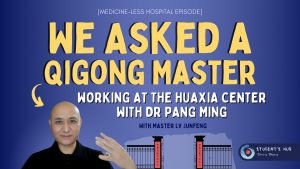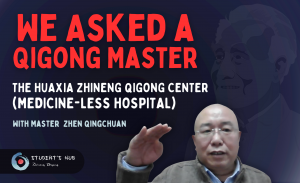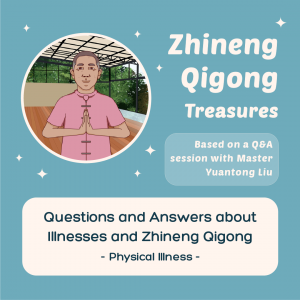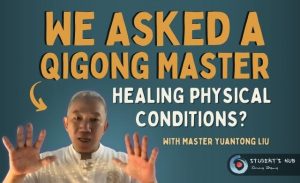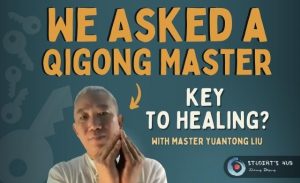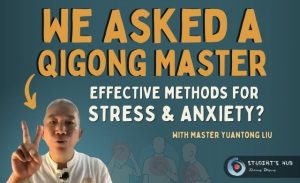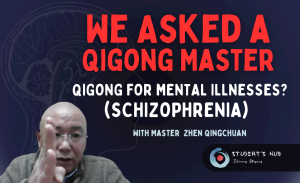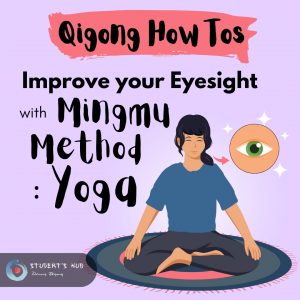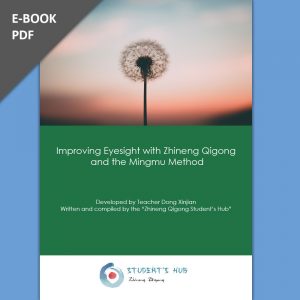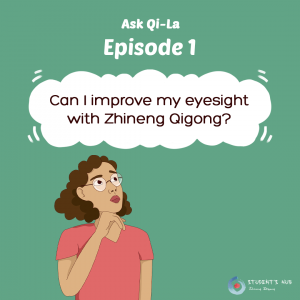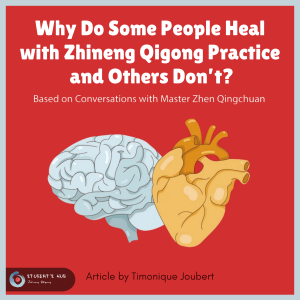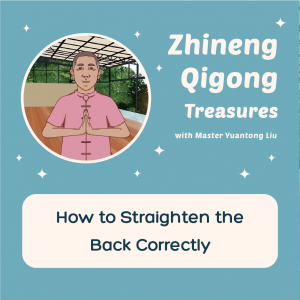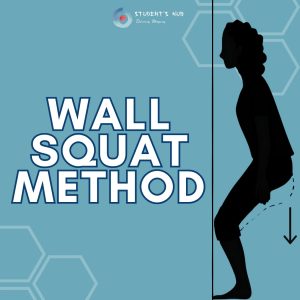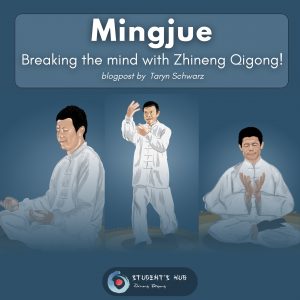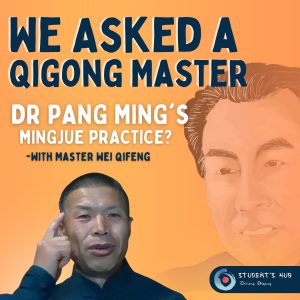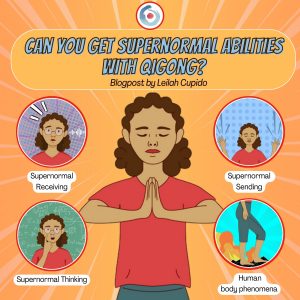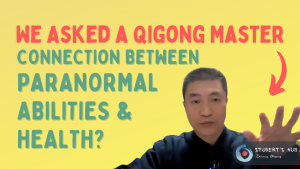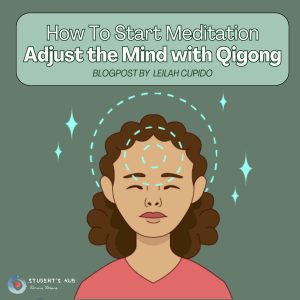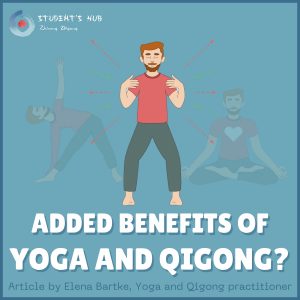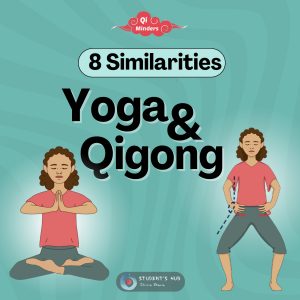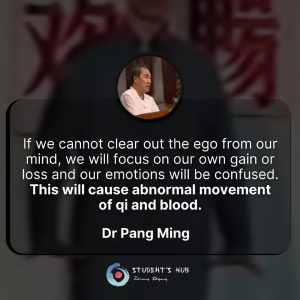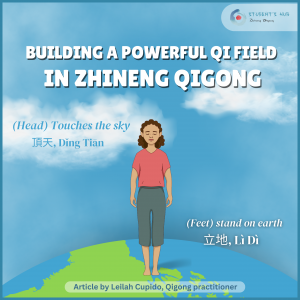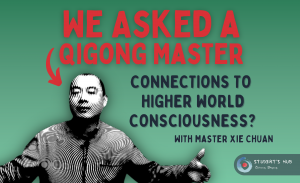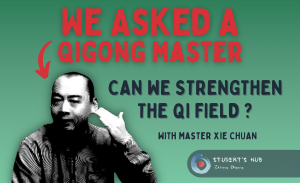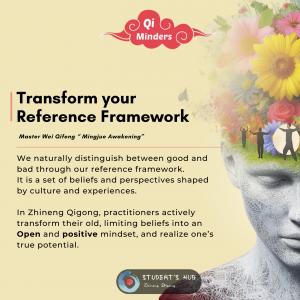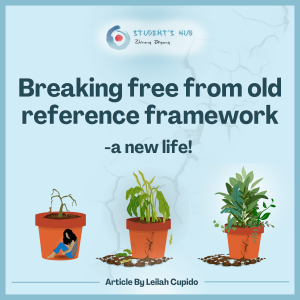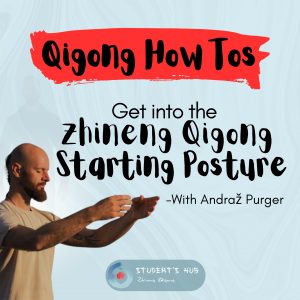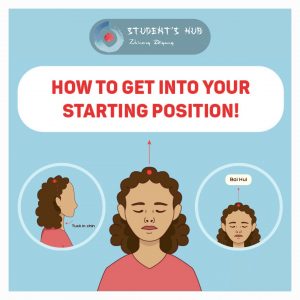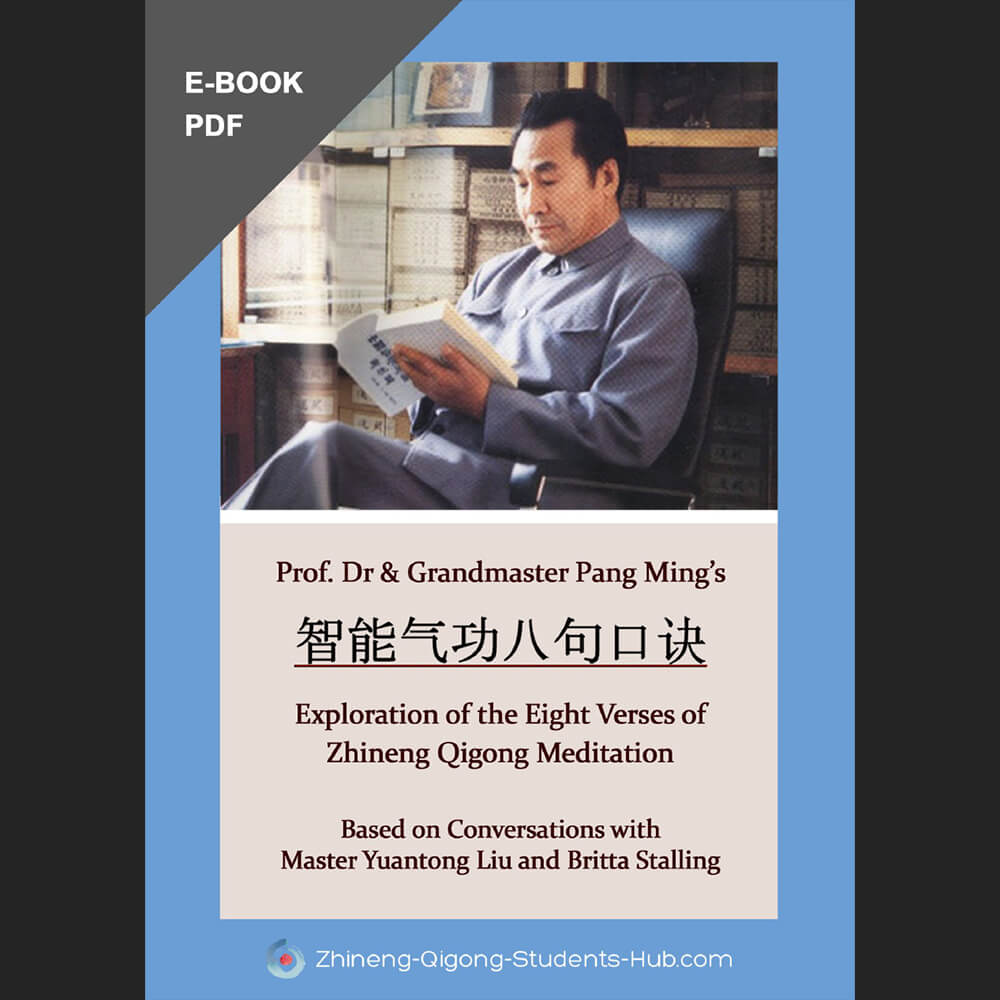Have you ever wondered if ancient wisdom could hold the keys to modern scientific discovery? In today’s episode, we explore the fascinating bridge between eastern sea science and western medicine, where century old Qigong practice meets cutting edge research in neuroplasticity, epigenetics, and even quantum biology. Our guest, Kristen Pols has uncovered these connections. In her new ebook, Qi Science and Modern Medicine. Revealing how focused intention and conscious awareness might literally reshape the body and the mind. My name is Torsten Lüddecke and this is the Wisdom Qigong podcast. My guest today, Kristen Pols, has done something incredible. She has looked into how Qi Science, is actually has parallels in modern medicine, western medicine. Because after we see zhineng qigong and Qi Science as a separate thing from Western medicine. But in fact we found that over the last, decades or so, there have been many discoveries in Western medicine that are showing something parallel to, what we already know from zhineng qigong And I’ve invited her. Onto the show today. She’s written a book about it, so you will also be able to see, the link in the caption. But I’ve invited her onto the show today, to explore this a little, more in more depth, and see what she has come up with. Now, welcome to the show, Kristen, and first of all, yeah, I would like to know if we talk about Qi Science, what is it actually and where does it come from? Awesome. Thank you Torsten. Thank you so much for having me. there have been loads of, I just wanna touch on that first. Loads of new and exciting things happening, with contemporary research, looking at ancient wisdom, how things connect with contemporary research, how I connect with modern medicine. And we are, as you say, finding lots of parallels in between. I think, just to touch on your question, I think a lot of people, that’s the first question they ask is, what is Qi? What is Qi science? and I think to explain it in a very basic way or a way that everyone can understand is Qi study is the study of life energy. It is the vital force that animates all living things. And I think just in that sentence, although it can be tricky to understand, it is something that is within each of us. and originally was, found in Chinese philosophy and medicine thousands of years ago, describing how energy and matter and information interact to sustain and balance and, harmonize, the body with the universe. she, science lays the Foundation for practices like Qigong and Hunyuan Qi Therapy, which cultivate, regulate and direct this energy for health, vitality, and self-healing purposes. And you say that in Western medicine today, we have parallels. We are discovering new things that if you look at them, you feel like, oh, that’s actually the same things that we have in Qigong. Can you give us, an example of that please? Absolutely. So I think, I might touch on my favorite point in it, and that would be, let’s say neuroplasticity. So neuroplasticity refers to our ability for our brains to, rewire themselves and their ability and their capabilities to be able to, obviously the basic, things that our brains do. Regulate hormones, regulate emotions and basically control the entire body. As it as, we know today that everything is connected, the entire body is one whole thing. It is not separate entities. so I think one nice parallel, like I said, my favorite is neuroplasticity, and it just shows how we can rewire our brains, through focused intention and mental practices such as meditation. So neuroplasticity, is it, am I taking it too far? or is it something else? It might be epigenetics. where we are actually saying that our brain or has a switch on, switch off for certain genes. Is that the same thing or is it neuroplastic plasticity here? So those two work on two very different platforms. So epigenetics is the genetic mono or the genetic makeup itself, whereas neuroplasticity is mainly, obviously in the brain. The word neuro does refer to the brain, epi. So what we’re finding with epigenetics in the parallels that it has with Qi science is that. You are able to influence your gene expression. So it’s not changing your DNA, it’s simply influencing your gene expression. And an author that I find, quite interesting is Dr. Joe Dispenza. And he often speaks about things like this in his books, where he’s done many different research projects in the past where this, specific thing is, quite prevalent in the results. Okay. Okay. I got, it. And a core idea in zhineng qigong is obviously, that, we don’t just have the live force energy that is all over the place, which is the hunyuan qi right, which is. Basically making up all matter, all information and all energy. But we also have something called the Yi Yuan Ti , which is using our consciousness to direct this, ally force energy. And I think this is where, you saying, okay, this is the same as a neuroplasticity basically because, if we are using our mind, our intention. To direct the Qi that means we can, use that to create healing or create health or create, other results in our lives as well. Is that A hundred percent. A hundred percent. I think the core, thing here is definitely consciousness, intention. And when I say consciousness, Intent, consciousness, mindfulness, self-awareness. and although a lot of people think that these things come naturally, they do obviously, but after quite a bit of practice, it does take some time to obviously sit with yourself, sit with your emotions. Sit with the physical part of yourself, the soul part of yourself, the energetic part of yourself. So there’s lots of different, aspects as actually to what makes up a human being. And but for me, what I’ve found in the research so far is that everything comes back to intention and. consciousness. Yes. Alright. And maybe for the listeners who are not so familiar with zhineng qigong , can you u, can you tell us how we use intention and consciousness in zhineng qigong science? From my point of view, intention is something that is very specific to every person. So my intention and your intention and someone else’s intention would not be the same. And the way that we express those intentions would not be the same. And so I think it’s important when you say intention or conscious intention or intention with consciousness. what we’re actually trying to refer to there is the ability to take a step back from everything, take a breath, and sit with ourselves, which I think in psych, in psychological terms, that’s what you, that’s what you would say is you have to sit with yourself and you have to learn more about yourself. And that cultivates self-awareness. That’s fantastic because with awareness we can finally find our intention. So is our intention to heal? Is our intention in life to be happy? Is it to be at peace? and I think from what I’ve learned, all of us have some kind of life intention and not many people have that intention. Themselves. It’s rather with the other aspects, the outer aspects of their life. They would like to be wealthy or powerful or have a healthy relationship, and that’s fantastic. But I think where it all starts is the intention of oneself. It’s the ability to take control over your own life, your own thoughts, and then being able to go, I want to change. I want to look after myself. I need to heal. That being your intention and that being your soul, not your sole purpose, but working the rest of your life around that purpose and watching how everything starts to connect to that as well. The key for me is when you said it’s conscious intention. Because I think whether we know it or not, we are all going through life with intention as a lot of the times the intention is very, is unconscious, which is also the reason why we create a lot of, negative things or not, or unhealthy things in our life. But it is about this consciousness and say, okay, I’m gonna set a conscious intention now for my health or my wellbeing, or whatever that might be. I think this is. This is what Dr. Pang, is using, in, or has used in the Medicineless Hospital so that people that, that join, they come with a clear intention, okay, I’ve got this tumor, for example, and this has gotta disappear. So my intention is to be without the tumor, and that is the. Conscious intention rather than, just some worries going on through your mind all the time. And, and all the thing that kind of diffuse the, the conscious intention and make it less powerful and take away from, from, what neuroplasticity to bring that, back into play, has discovered that it’s my mind that’s creating this, and this is why my mind can also change things, Absolutely. Absolutely. like we say in, in chapter four of our book, conscious Intention Guides, Qi and as we would say in Qigong Ying leads Qi, excuse me. and I do definitely think you’re right in that sense where it is, when we focus our mind on something, we can direct energy. I’m gonna say energy because I think it’s, a broad word for our listeners. two specific parts of the body. So we are able to reduce stress and promote psychological coherence, physiological coherence. So that is then body, mind, spirit. That is the whole thing in one. Yeah. what are some other things that you’ve discovered? What else is going on in Western medicine these days? That is a parallel to what we know from zhineng qigong . So I think again, on the, note of, consciousness and intention, science does show measurable effects, like changes in heart rate variability, brainwave patterns, and like I said before, gene expression as well. and the, and these are results coming from meditation, visualization, mindful intention, and essentially your be your mind becomes a. A tool to activate the body’s self-healing mechanisms. And can you, give us a little more, about, about what the breast medicine says here? Absolutely. So most of the studies that have been found when it comes to intention, because intention is such a tricky thing to measure, and consciousness is such a tricky thing to measure, a lot of it is coming from a psychological standpoint. but also tied in with physiological. As you see, if you focus on your mental health and you have that intention, you’re going to therapy, you’ve made that choice, you’re going to the psychologist, you’re having a conversation about things you would like to get rid of, memories you’d like to get rid of, stresses, that is then your intention stepping in. And a lot of the times with people who have high anxiety, high stress, depression, things like that, you will be. given homework from your psychologist to go and meditate or journal or visualize. And in western terms, we found this to be so normal. But once we start using it in I think more Qi science terms, that’s where people find it a bit tricky to understand when an actual fact it is very much the same thing it is to sit down with yourself. It is to have a, sometimes a very hard conversation about where you are at in your life and what you would like to change. And then it is sitting alone and feeling and discussing and like I said, having a hard conversations and things like that. So a lot of the studies or a lot of the research that’s been done has been done more in the psychology field with regards to intention and consciousness. Now, one thing I found, in your book is, the topic of, quantum biology, right? Okay. as you can tell, I’m not a scientist. can you explore this a little bit, further and make the parallel to what it tells us about Qigong science yet? Absolutely. quantum biology is a very scary word, but when you break it up, it is simply quantum. Biology. So biology meaning bio, so human life forms and nature. and then quantum meaning the various levels, the various layers that are, so we often have quantum, mechanics and quantum engineering. And so these are the various layers that have to go into something for it to all come together and make sense. So that’s the easiest way I think I can explain that. but. touching on the quantum biology, the, science and research behind it is something. That, observes and measures phenomena that ancient Qi practitioners have been saying for centuries. For centuries. but now we’re actually able to put it into words, which is, very exciting. so yeah, quantum biology explores how energy and information at cellular and molecular level affect your health. And so the body isn’t. The way. Yeah. The way that we can see it is the, body is an energetic information driven system. This information driven system responds to environmental cues as well as the individual’s consciousness. like I said before, breaking up the word quantum biology, the various layers of our biological cells, there is now in science an understanding that we are not just. Inside and the outside, we are multiple different layers. We are spirit, we are soul, we are physical, and we are emotional. and I think that’s fantastic to see that modern research is picking up on that and starting to do research studies on that. Absolutely. So, the parallel would be like the, in, in Qigong we have the origin In Qigong, we have the three, levels of substance, right? We have the, material, we have the energy, which everybody understands, but we also have the information level, which means it’s the information that drives how the material and the energetic world develops and, evolves. And, this is what we are picking up now in, quantum biology. Absolutely, yes. like you say, in, in Qigong, we have Chen, we’ve got Jing, we’ve got Qi, and yes, all of those three treasures as we like to call them in the book. and in, in, zhineng qigong as well. they’re definitely, again, ancient words with modern meanings. It is fantastic to see those two parallels together and to see that there is an understanding between the two and there is proof to see that, that it is more than just one. We are more than just one being we are multiple levels. Now I really think it’s wonderful that you, that you are looking into these things and trying to find the parallels in Western medicine with Qi Science. And, because, from, me as a Western mind, sometimes the concepts in Qi science fi, sound a little foreign and to find, confirmation. of my, of these ideas in Western science is reaffirming for me. And, we know how important it is to create a trust and so that the, in, that the intention can actually work properly. So I think this is an important, link for people that are not so easily. Okay, I’ve got it. This is how Qigong works. Believe it now. I trust it now. your work here and what you are putting out here can help people to get a better understanding and say, okay, this is real. This is not just made up by some, random Chinese guys 4,000 years ago. how do you feel about that? I think there is a bit of a, an odd contrast. I, did, I think a personal story. I, grew up in a household that, had people who worked in Western hospitals. I grew up going to Western doctors. and then I myself took a bit of a, journey into Eastern Medicine. just out of interest sake. And I’ve been stuck with it ever since because, and I think I’ve had the privilege of, being born in the time that I’ve been born because there is a lot of research coming out right now with regards to not just Eastern medicine, but Asian, all, medicine. All medicine. That, that, ancient medicine that people have constantly, looked over in the past. and this happens and we’ve seen it happen before. We’ve seen it happen with yoga. We’ve seen it happen with meditation. We’ve seen it happen with journaling. We’ve seen it happen with sweat lodges, and as people become a little bit more used to the idea and they see the results themselves. That I think is when the true belief, does come. So yes, the research does help, especially for I think people who are a little bit skeptical to step into a space of self-healing. It does take a lot of acknowledgement of where you are in your own life, and that can be quite tricky, and I do find that. Has been a difficult thing from my past as well, dealing with, clients that I have dealt with. It is taking that first step and, that first step and deciding it’s time for me to look after myself. And we’ve, never, in western, medicine, you never need to look after yourself. You go to someone to look after you. So yes, it is scary. All this research that’s coming out right now on the parallels that we’re finding between Eastern and Western, or contemporary research is something that I think is definitely going to reshape the way that we look at medicine and healthcare in the future. A hundred percent. I’m just thinking of the many podcasts I’ve done, from people that use Qi science, zhineng qigong, hunyuan qi therapy to heal themself, and then they went back to their doctor. And, where, the doctor said that it’s not possible because we don’t have anything like this in Western medicine. I, don’t. Believe. Yeah. And they’re usually sent away because the doctor doesn’t even want to hear the story. And now they can take, the book and say, but this is really neuroplasticity. and you should have learned about it at your university. I think we can now explain to the doctor why our healing did work and then maybe get one or two of them, curious to, to learn more about it and find out for themselves. So I think, yeah, I’ve just reminded of all these doctors who usually say. I don’t want to hear about anything about it. the number of times I had people see people on the show that went back to the doctor after the healing and the doctor just said, don’t tell me about it because it’s, I don’t even want to hear it. Because it’s not part of their framework of their reference framework here. Absolutely. Absolutely. I think many people have had that, interaction and it can be very, I think the right word is unvalidating and quite frankly, frightening. to, take care of yourself and to take a step back and to look after yourself and make that decision is already a big decision in itself. Then to advocate for yourself on top of that with a medical practitioner. Who you do look up to there, there is, a sense of a power dynamic when it comes to practitioners and clients, and I think that’s the point of Qi science is that’s what we’re trying to change. There is no power dynamic. You as the person are your own practitioner. And I think that it’s important if, people are going to take these steps to remind themselves that they need to be a self-advocate. They cannot lean on other people and they cannot lean on family members constantly. This is very much, I think, a step into looking after yourself, self-healing, and then afterwards being able to look after other people and care for other people and guide other people in the way that you can because you are healthy and you are there and you are. You do have this conscious mindset about it as well. What is, quite interesting here is that, when you hear, the official narratives in Western media and they look at alternative health methods like zhineng qigong, but also on others, you hardly ever hear anything or these are not aware of where they say it’s not working because what they usually say is there is no proof that it’s working. So basically what they are saying, there’s not. There hasn’t been put enough research into the, alternative modalities to give scientific proof to these methods. so I’m curious that in your, what you have done here, in your little research into, the whole meta, did you find anything that contradicts Qi science, anything where it says, oh, this is a problem, or is it just as I said now, there is nothing that really contradicts, Qi Science. Only that there is no proof. Official proof. Yeah. So while doing the research for the book, an important thing to understand is that there are limitations to everything. while trying to search for the limitations, the only limitations was the lack of research. and unfortunately, the only reason I think there is a lack of research is because it’s not, it’s a, it’s not a very high funded thing. It’s not something that people are willing to go into and research. I think as human beings, we get very stuck in our ways. and I think when something new comes up, we, get scared and, and then from there we have to move on. And like I mentioned earlier, yoga had the same effect when it just started out. Everyone was against yoga, meditation. Everyone was against meditation and now it’s something that, that psychologists and psychiatrists are prescribing. Doctors are prescribing. So absolutely, I think there’s no limitations. What I found from my research, other than lack of research. and the truth is there has been a lot of research going on, in the eighties and nineties, but it was in China. And, yeah, the way the Chinese do the research is a little different from our Western standards, and it is in Chinese, so nobody understands it here properly. but the number of research projects go into thousands. there is a documentary about the Medicineless Hospital. And the research that they did on our YouTube channel. So for anyone who would like to find out more about it, it’s, that was the, that was when, thousands of people looked into that. Scientists, hundreds of scientists were doing the research. but we haven’t done this in the West yet. And as you said, there’s. Always, we know research needs to be funded. It’s expensive. And unfortunately, if we find out that zhineng qigong is working well, there is no money to be made. There is no medication that comes out of it. There are no drug that you can sell for higher prices. And that is, sometimes in the way of doing this, kind of research. But as you mentioned, meditation these days, nobody is doubting that meditation is a, Proper health method. yeah, even the most backward Western doctors would not disagree with that. I think we are only on a good path here, to get to the same, results with zhineng qigong And, you looking at what is happening at, in, in Western Medicine currently helps. Now, I, would like to see, to ask you whether there’s anything else that you’ve discovered that you’d like to share here, before, we. finalize this episode here. Is there anything else that comes to mind? I think it is a, just a few words for, our viewers. it can be difficult to start your journey, especially with finding something new like Qigong. But the best place to start, in my opinion, is to practice and to practice is simply to wake up every morning and take a deep breath. Stand outside and just take a moment to yourself and take a moment to feel your feelings and to feel your body. And if you stand outside, then listen to the birds, and listen to the wind and hear the leaves crumple. If the, if you’re an autumn, that I think it’s important to take a step back. for all of us, even if people aren’t PR are practicing Qigong, I think it’s important to take a step back and be mindful about where we are at, especially with the kind of world that we live in today. A little bit of mindfulness goes a long way. Kristen, before we, finalize our little meeting here, I’m curious to get back to your personal story when you said that in, and you have a background of, people in your family who are actually more in the Western, professions of, medication. how are they reacting to what you are doing and and the research that you are doing? Trying to find the parallels here between the Western and eastern world. I think in the beginning, I began studying in 2018, so I think back then as well, meditation was still something that wasn’t used, or very rarely used. Only in, in, Western, I think very western or first world countries. I, it was never frowned upon in my family. I think my family always believed that I need to go and do what I need to do, but it was not their favorite choice of mine. To go into a more holistic health aspect. I think they very much wanted me to follow in their footsteps and go into the Western health. initially I had, many an argument with the family about it being real medicine, it being seen as real medicine. but I think after about five years now. They finally do understand a bit more because I’m able to sit with them and use the same medical terms and explain these ideas that I have. Not these ideas, but these philosophies, these ancient philosophies, and I explain these things to them and there’s never an objection. It’s never an objection. It is always an open invite. they always try it out for themselves first, and they definitely do their own research on the side, which just, I think, proves the point a little bit more that there is a lot to come with, regards to, this kind of research. And I’m very excited and my family that practice practices Western medicine is just as excited to see what they can do and how they can also bring in the holistic side of things into their own practices. I think that’s a beautiful way of saying, here is a family that is not exclusively one way or another because these two things belong together. A lot of the ideas are the same and many of the, the techniques we are having are complimenting each other. so that’s great and I think it’s a wonderful closing word. Kristen, thank you very much for, being here today. Obviously we’ll have a link to the book in the show notes. If everyone, anyone is interested, you can find out more about that. And yeah, and thank you very much again and have a fantastic day further. Cool. Thank you so much Justin. We trust you, enjoyed this conversation and we invite you to subscribe to our podcast so we can stay in touch and notify you of future episodes. We will end today’s episode with the eight words meditation performed by zhineng qigong teacher Katrin Hendricks. Enjoy. To get your free ebook on the eight verses meditation, please check the show notes below.







